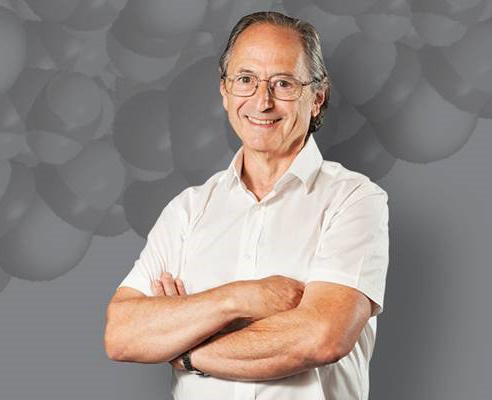Latest News Archive
Please select Category, Year, and then Month to display items
08 August 2023
|
Story EDZANI NEPHALELA
|
Photo EDZANI NEPHALELA
 Mbulelo Aven Jafta, Xhariep Municipality Corporate Services Director, and Dr Engela van Staden, Deputy Vice-Chancellor: Academic at the UFS, sign a memorandum of understanding to enrich various communities in the Xhariep Municipality areas through leadership training.
Mbulelo Aven Jafta, Xhariep Municipality Corporate Services Director, and Dr Engela van Staden, Deputy Vice-Chancellor: Academic at the UFS, sign a memorandum of understanding to enrich various communities in the Xhariep Municipality areas through leadership training.
The University of the Free State (UFS) has signed a memorandum of understanding with the South African Local Government Association (SALGA) and the Xhariep Municipality that is aimed at positively impacting communities through strategic partnerships. The organisations plan for their collaboration to make a significant difference by training 35 of their employees via the UFS Business School – 15 will undertake the Foundation Skills Short Learning Programme, and 20 the Bachelor’s degree in Management Leadership.
This joint effort will equip these employees with essential skills and knowledge and empower them to carry out their responsibilities efficiently and effectively. Rooted in the UFS’s Vision 130, this initiative fosters positive change within the community by enhancing social justice and innovation.
Dr Engela van Staden, Deputy Vice-Chancellor: Academic at the UFS, emphasised the university's dedication to human resource development and empowering individuals. “We were very excited when we got this engagement with you, and I hope it will be fruitful for you, because that’s the intention. We are also reaching out to other municipalities because we are doing it for our country, and the sooner we do it, the better the services you will deliver to people.”
Xhariep Municipality expressed gratitude for the collaboration, recognising its significance in empowering its employees. Mbulelo Aven Jafta, Corporate Services Director at the municipality, thanked the university for accepting the partnership. “As a municipality, we are interested in capacitating our employees to perform their duties optimally. It is through these partnerships that we reach our intended targets. This is the first two projects, and many more will be coming as our partnership progresses, and we intend to use this opportunity to the best of our abilities.”
Jafta said that such partnerships encourage a more interconnected and interdependent world. “As organisations work towards common goals, they create a ripple effect that can lead to a brighter and more promising future and play a vital role in shaping a positive and sustainable future.”
Nobel Laureate for Chemistry to visit UFS
2017-10-28

Prof Michael Levitt will be hosted by the UFS from
14 to 16 November 2017, where he will present the
first lecture in the Vice-Chancellor’s
Prestige Lecture Series.
Photo: Supplied
It is a great honour for the University of the Free State (UFS) to host Prof Michael Levitt, recipient of the 2013 Nobel Prize for Chemistry, which he shares with Marti Karplus and Arieh Warshel.
The trio received the Nobel Prize for their development of multiscale models used for complex chemical systems. “Being awarded the Nobel Prize is a unique and marvellous experience that no one can prepare for or could in any way know what to except,” said Prof Levitt during his 2013 Nobel Lecture at the Stanford University School of Medicine.
First lecture in Vice-Chancellor’s lecture series
The South African-born Nobel Laureate and Academy of Science of South Africa (ASSAf) Visiting Scholar will present the first lecture, Birth and Future of Multiscale Modelling of Macromolecules, in the Vice-Chancellors Prestige Lecture Series at the UFS on 14 November 2017. Prof Levitt is well-known for developing approaches which predict macromolecular structures.
He is one of many distinguished academics invited annually by ASSAf to deliver lectures as part of the Distinguished Visiting Scholars’ Programme, presented by ASSAf at universities across the country.
Pioneer in research of molecular dynamics
Prof Levitt is a biophysicist and a professor of Biology at Stanford University. He was one of the earliest researchers to conduct research on molecular dynamics stimulations of DNA and proteins. “My post-prize ambitions are twofold and probably inconsistent: (1) Work single-mindedly as I did in the mid-1970s on hard problems, and (2) Help today’s young scientists gain the recognition and independence which my generation enjoyed,” said Prof Levitt.